44. My smart power matrix – combining soft and hard power
A new interview with Joseph Nye, originator of the name ‘soft power’, sheds new light on this key concept.
I’m a keen reader of the Comment Is Freed Substack where son and father team Sam and Lawrence Freedman publish their latest commentaries on politics (Sam) and foreign affairs (Laurance) from a UK perspective. They are well-informed, take a nuanced view and write at the kind of length that allows them to expand on a topic in a focused way.
This week Lawrence has interviewed Joseph Nye, former Harvard professor and originator of the concept of soft power, on the occasion of the publication of his memoir A Life In The American Century. Nye is now 87; he remembers the dropping of the atomic bomb on Hiroshima and worked through the following half-century where the USA engaged (and won) the cold war with the Soviet Union and emerged as Top Nation (thank you Sellar and Yeatman!). This position has subsequently been tarnished with ill-advised military incursions and Donald Trump shedding a new light on US priorities. It has been said that the 19th century was the British century, the 20th century was the American century and the 21st century will be the Chinese century. We shall see.
Nye originated the concept of soft power, the power of attraction rather than force. Nye was working in the field of diplomacy and international relations; I took the concept and expanded it into everyday leadership in organisations in my book Host (with Helen Bailey, 2014). This week’s piece is about Nye’s latest musings on soft power, my soft power matrix and how it’s all a key piece of humane and effective organising.
Soft Power
Soft power, says Nye, is the power of attraction. In a pithy quote from his 2008 book The Powers to Lead, he sums it up nicely:
“If I can attract you to want to do what I want you to do, then I do not have to force you to do what you do not want you to do.”
In his recent interview with Lawrence Freedman, Nye looks back on how the concept came to him.
Bob Keohane and I co-authored “Power and Interdependence” in the mid-1970s. We were intrigued that the OPEC countries were able to take hundreds of billions of dollars from the richest countries in the world without military force being used… we argued that asymmetrical interdependence provides power and that non state actors such as the transnational oil companies can also provide power.
So we tried to explore new dimensions of power besides the obvious ones that you get by assessing the balance of forces. In a military sense, it didn't mean that we didn't think military power was extremely important. It is, obviously, but it's not the whole story... I started to assess American power in a book that eventually came out, called “Bound to Lead”. I argued that military power was most important and economic power close to it, but there was still another dimension which people weren't paying enough attention to in our field: the ability to get what you want through attraction rather than coercion or payment. I called that soft power.
The contrast with hard power is vitally important here. Hard power, the power of force and coercion, used to be seen as the only source of power. This includes not only military and legal force but also the power of payment. Nye goes on to reflect on how the term has come to be seen:
Very often people use the term soft power for anything that's not military force, and that's clearly not the way I intended it: which is the ability to get what you want through attraction. Some people use it correctly, but more often than not it's misused.
The interviewer asks about whether hard and soft power (and smart power, the use of the two together) can be distinguished in practice. Nye replies:
Power is the ability to affect others to get the outcomes you want, and you can do it by coercion, or by payment, or by attraction, but it's extremely rare that you use only one rather than all. Occasionally we use just coercion, as when the police arrest a criminal, or when Putin attacks Ukraine. But soft power usually plays a role.
Take Ukraine. Zelensky who was television actor, knew how to put his green T-shirt on and to make it clear that Ukraine was a victim and to draw sympathy. So not only in the United States, but in most of Europe there was a great attraction toward Ukraine. Remember, before the invasion people had been complaining about corruption in Ukraine and so forth after the invasion there was a feeling that poor little Ukraine is being victimised and that essentially created soft power for Ukraine, which then was readily translatable into the hard power of military provisions and equipment. So to see soft power and hard power as separate is a mistake. That's why I use this term “smart power” about the ability to create a strategy which in which the hard and the soft power reinforce each other.
The smart power matrix
Writing in 2014, Helen and I took these ideas of hard, soft and smart power and put them into a matrix. (What else would good consultants do?) The matrix is original and sheds even more light on the differences and how they can be used.
I am using the term ‘invitation’ rather than attraction. In the Host book, one of our six roles of a host leader is the Inviter role, which is based on soft power. Invitations are by definition optional; if you can’t say no, then your yes is meaningless (as Peter Block puts it so elegantly). We encourage host leaders to work with the soft power of invitation as much as possible, and only fall back on authority in very touch crisis situations. (The corollary of this position is that the relationships built by soft power are much more likely to hold up through occasional ‘pulling of rank’ than if the latter is the only game in town.)
The fourth quadrant in the smart power matrix is ‘Unused power’. Helen and I thought hard about what this area of the matrix implied. Low use of both hard power and soft power is not simply nothing, we thought. Hard power requires resources, money, position, weapons… but soft power is anyone’s for the taking, should they wish to develop it. Anyone can start inviting others to join them around some cause, issue, injustice or innovation. (This is not to say that such a position always brings results, but it’s a low bar to begin.)
Building soft power
There has been a lot of news in the UK in the past few weeks about the scandal of sub postmasters wrongly accused and convicted of fraud due to errors in their Horizon accounting system. The scandal has been running for well over a decade, with slow and grudging progress being made. Soon after Christmas 2023 ITV broadcast Mr Bates vs The Post Office, a TV drama starring Toby Jones about sub postmaster Alan Bates and his attempts to get justice through the courts. Showing in a week when everyone was off work and able to watch, the effect has been galvanising. Suddenly everyone wanted action now, politicians were lining up to demand progress, legislation is being produced, the former head of the Post Office has handed back her CBE honour… not because of the force of law (which has always been there) but by the power of attraction, the desire of people to be on the right side and the power of a story well told.
Growing use of soft power – in some areas
The show Shen Yun is about to start its 2024 tour of the UK. The show is described as “a brilliant artistic revival and celebration of China’s rich cultural heritage”. There will be dancers, music, lavish costumes, unfamiliar sights, poetry and stories. In the words of the show’s website,
Shen Yun’s works convey the extraordinary depth and breadth of genuine Chinese culture, and bring the magnificence of five thousand years of civilization back to life on stage.
I am sure that the show will be magnificent and that audiences will be thrilled, moved and amazed. I am also sure that this show and others like it are Chinese soft power in action. If the West can be moved on from images of Mao Zedong, the cultural revolution, people waving little red books and shown a different and more attractive vision of modern China, that may make life a little easier for Chinese diplomats and businesses. It’s even titled China Before Communism! The rise of Korean K-pop in the west has similar positives for its Korean homeland.
What would have happened if Vladimir Putin, seeking a compliant neighbour to his west in Ukraine, had employed soft power strategies? We shall never know for sure, but part of the mix might have included support for the Russian language, funding, institutes promoting Russian art and literature, mutual exchanges and support on the international stage. Sadly, he went all-in on hard power; attempting to install puppet Presidents and prime ministers, removing Ukrainian nuclear weapons, rejecting the legitimacy of Ukraine as a nation, annexing Crimea and finally a full-scale invasion. Which would have been cheaper, more effective and less bloodthirsty? Hmm.
Getting interested in what others want
For soft power to work, you have to get interested in what the others want. Hard power, force, coercion and payment are all to do with potential negative consequences. If you don’t do what I want, I will attack you, force you, not pay you. Soft power, on the other hand, is all about potential positive consequences. If we do this thing together, it could turn out to be really good for both of us. So thinking about what would interest others from a positive, attractive perspective is key.
It seems to me that Brexit was, at its heart, a misguided attempt to exercise of hard power (which the UK didn’t have nearly as much as some thought). In doing it, a lot of soft power was thrown away (a seat at the table, amplifying our ideas, influencing in the corridors, playing a part, being with the other EU members), all of which were rejected by the Brexiters because of ‘sovereignty’. Soft power shows how the world is an interdependent place, and how far influence, care, diplomacy, and listening can go.
Conclusions
Everyone has the potential to use soft power. From everyday citizens and communities through organisations and institutions to nations and global companies. Notice who is using it – and who isn’t. US president Theodore Roosevelt said in 1901, ‘speak softly and carry a big stick’. Be very wary of those who speak loudly and rely on stick-wielding as the first, last and only source of power.
Dates and mates
As I said at the start of this piece, I am a big fan of Comment Is Freed. Check it out now on Substack - there is a free level and a paid option.
I will be at the Host Leadership Gathering 2024 in Sofia, Bulgaria on 3-4 June. We’ll be discussing, learning and applying the ideas of leading as a host, including the smart power matrix. Come and join us. All welcome.



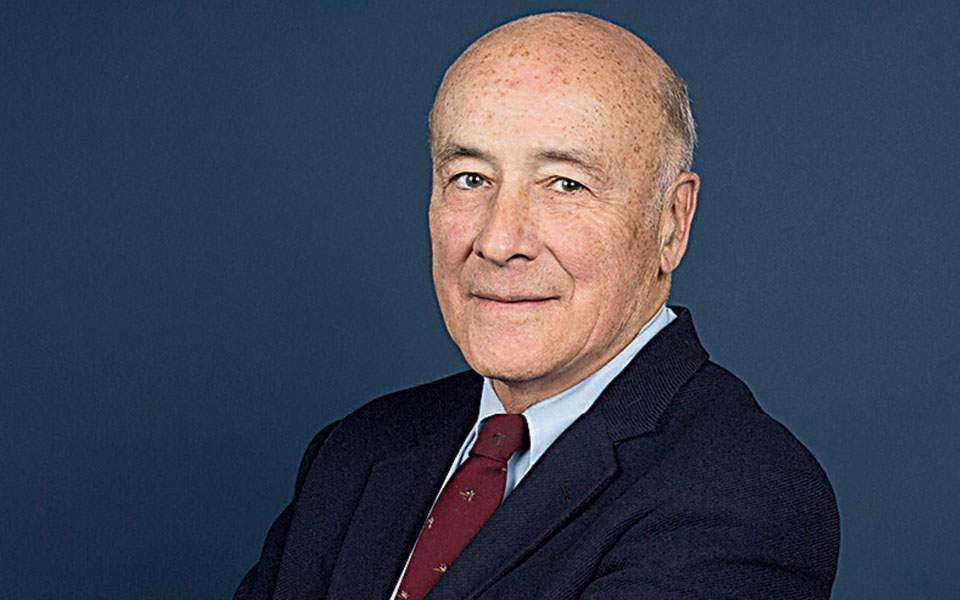
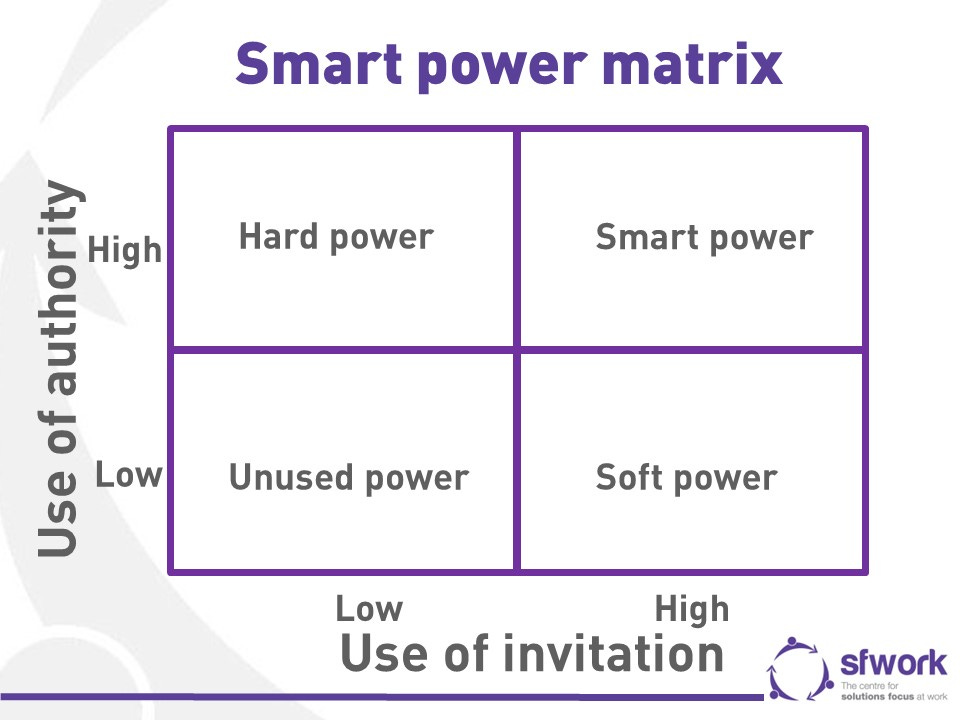
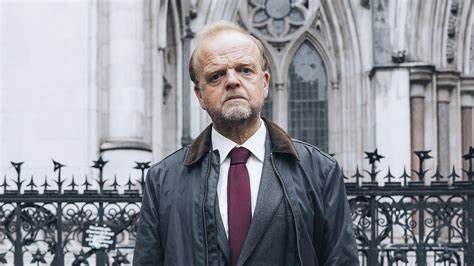
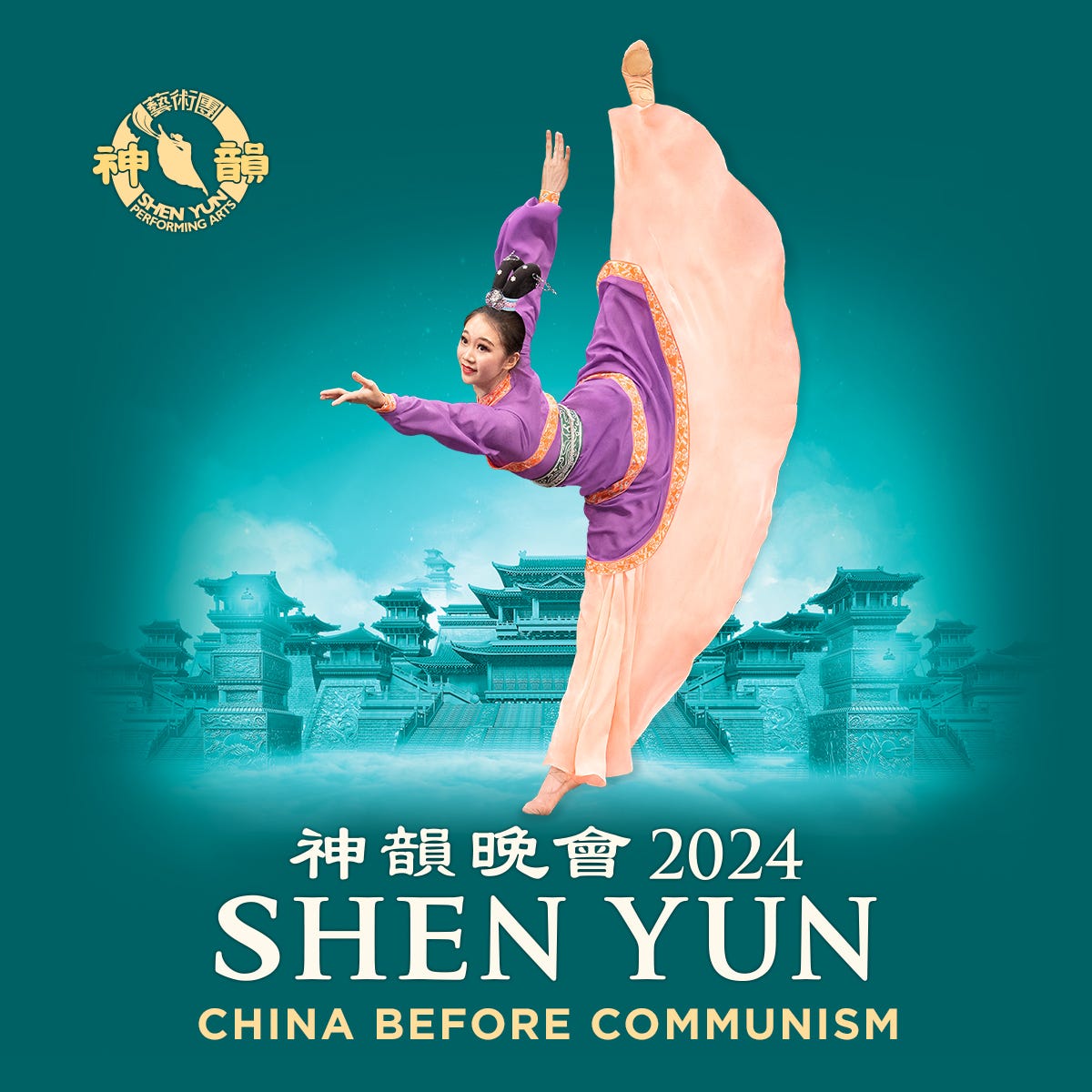

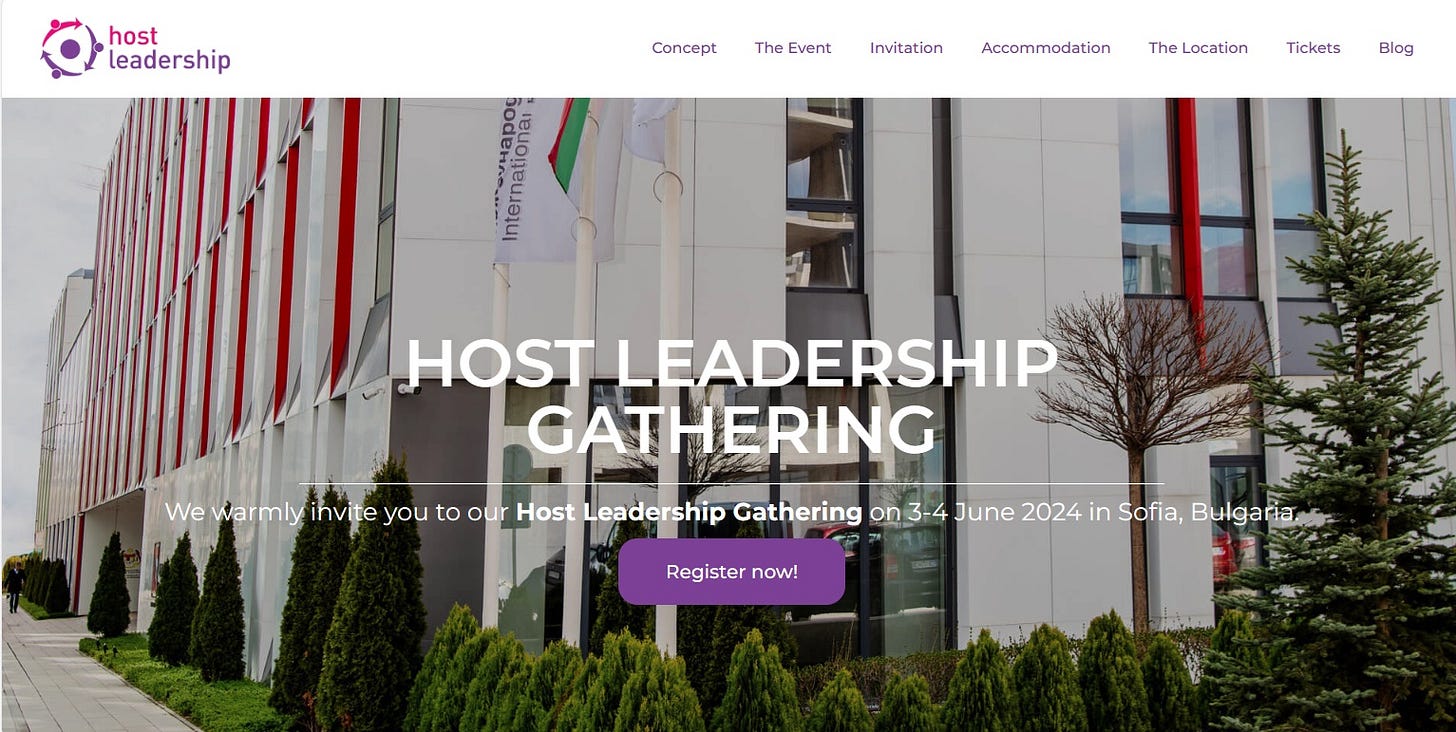
It's been pointed out to me that the Shen Yun show is in fact soft power from the Falun Gong movement, rather than the Chinese government (who they oppose). I suspect it may end up serving both causes in fact. As Titus Alexansder says:
"I don’t know if the show contains explicit anti-government propaganda, but I suspect not or its too oblique to be noticed and does more for the government than not – just as Hollywood films condemned as unamerican probably did more good for the USA than House Committee on Un-American Activities."